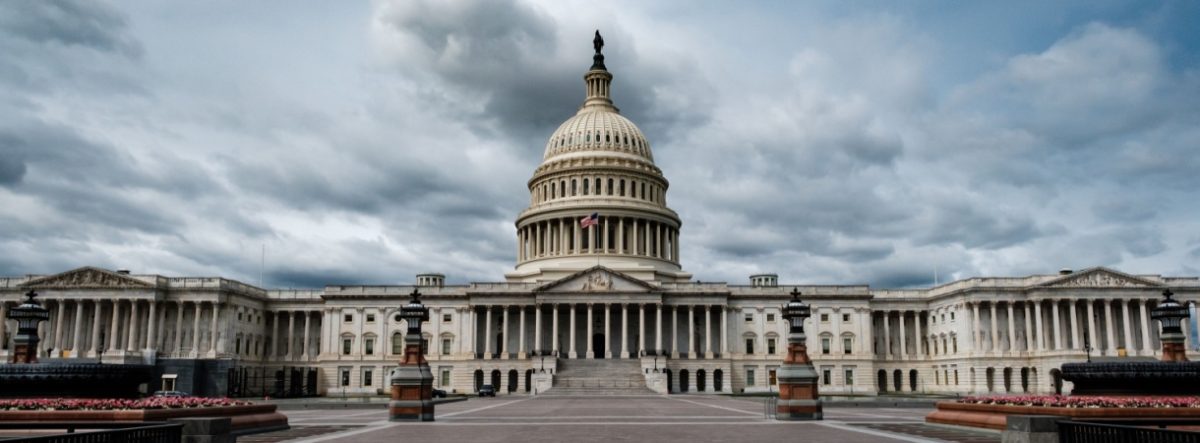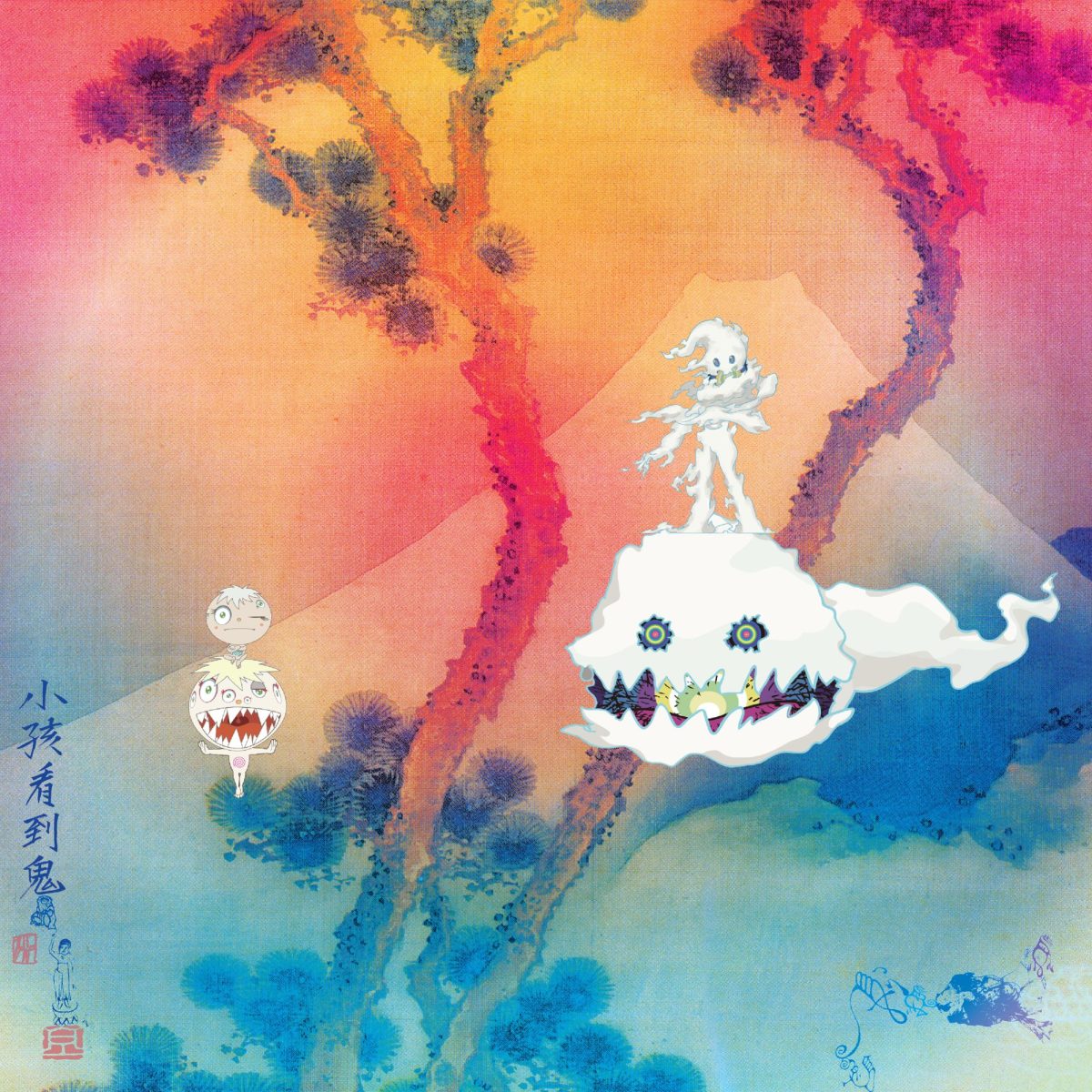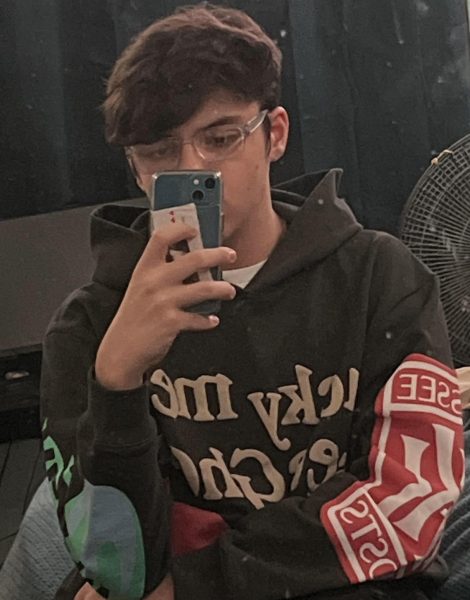“Kids See Ghosts,” an album co-written, produced, and performed by Kanye West and Kid Cudi, serves as a metaphor for struggles with mental health, addiction, and abuse. It follows up on the vulnerable “ye,” a solo album released by West the week prior.
Released in 2018 as part of a series of five 7-track albums produced by West (including Daytona by Pusha T, Nasir by Nas, and K.T.S.E by Teyana Taylor), it heavily emphasizes the struggles with mental health that both West and Cudi have dealt with. Notably, West’s struggles with bipolar disorder and Cudi’s battles with depression, while also highlighting how they have learned from their past mistakes. It reframes the idea of mental health as something one can learn to accept and live with, rather than being consumed by it.
Both artists had been struggling heavily with issues the year prior. For West, it culminated in an 11-day stay at UCLA Medical Center following outbursts due to exhaustion during his Saint Pablo Tour in November 2016. Notably, he went on rants on dates in San Jose and Sacramento, calling out JAY-Z, Mark Zuckerberg, music executives, and radio stations, expressing his political views, and defending his support of then-presidential candidate Donald Trump. Additionally, Cudi checked into rehab in October 2016 for struggles with suicide ideation, depression, and continued substance abuse. During this time, he also suffered a stroke while in rehab, requiring months of physical therapy and rehabilitation to recover. He has been open about his struggles in many of his works, notably in the “Man on the Moon” series and his album “Speedin’ Bullet 2 Heaven,” which he later described as a “cry for help” in a tweet posted in 2020. Despite this, both artists had a quiet 2017 as they returned to music and their public life. However, during that time, they worked together on new music, resulting in the formation of “Kids See Ghosts” and their self-titled album.
Starting with the first track, ‘Feel The Love,’ a bold opening into the minds of both Kanye and Cudi. Cudi starts by repeating the mantra “I can still feel the love,” with gunshot-like adlibs coming from West, as well as a verse from feature artist Pusha T about the contrast between the luxurious lifestyle he has been able to live and his past roots of drug dealing, a common theme in many of Pusha’s lines. While both West and Cudi have struggled with breakdowns, mental health issues, and controversy, as well as conflict between the two of them in the past, they still receive love from themselves, their families, and their fans. This contrasts with the heavy lyrics from Pusha, who raps about his past and the lifestyle he has been able to achieve through his career’s success. While all three rappers have shared that success, they all take unique approaches to showing it in this track. For Pusha, it is a reflection of where he has come from, for Cudi, it is a reflection of the love he has been shown by his fans and family, and for West, it is a reflection of his erratic nature closely tied to his public image.
Moving to “Fire,” the second track off the album, the heavily bit-crushed drums and erratic adlibs from West are replaced by a guitar and flute, as well as sampling the drums and beat of “They’re Coming to Take Me Away, Ha-Haaa” by Napoleon XIV, a song fittingly themed around mental health struggles. The soundscape is almost reminiscent of a graveyard, in line with the theme of their past struggles being ghosts that haunt them. It strongly resembles some of Cudi’s previous works, most notably “GHOST!” off of Man On the Moon II and “Embers” off of Speedin’ Bullet 2 Heaven. On this track, both bring up their past failures and the people who judge them for it. However, they wish to look past it and move forward, a recurring theme of the album. This is amplified by the end of West’s verse in which he says “Through with mixed messages, through with the mail / Only a few in the field, little bit off for the real.” In this, he says that he wants to be direct and honest with his beliefs and believes that others should do the same. Cudi raps about himself turning to God during his struggles with his mental health, as well as how he found solace in “beautiful madness.”
On the third track, “4th Dimension,” the tone shifts yet again to more of West’s signature style of production, in this case, a 1930s Christmas song by Louis Prima (“What Will Santa Claus Say”). This cut is another change in pace, a more typical song from West almost adjacent to one of his past albums. It keeps the eerie feeling of the prior song, with the provocative and one-liner-heavy style of his prior works. He mentions sexuality, interventions, and even the brand Lacoste in a short yet reference-packed verse. Cudi’s verse is a change of pace, talking about both his sound and how others fail to capture it (“Gettin’ loose while I’m rollin’ through, see me roll out / Watch you surf, hit the coast, and this feelin’, I got”), as well as continuing to allude to his past struggles with drug abuse and addiction that led to him entering rehab (“Such a lost boy, caught up in the darkest I had / What’s the cost, boy? Losin’ everything that I had”). A track with many topics, it is the most Kanye-influenced of the songs so far.
The fourth track, a sequel to “Ghost Town” off of ye aptly named “Freeee (Ghost Town, Pt. 2),” marks a significant change in the tone. Going from eerie and reflective to near psychedelic and upbeat. Instead of reflecting on his past mistakes, West and Cudi make it a point to tell us that they feel free, repeating the chorus “I don’t feel pain anymore / Guess what, baby? I feel free” in several variations throughout the song, with Cudi and feature artist Ty Dolla $ign also repeating the mantra throughout their verses. This is similar to “Ghost Town,” in which 070Shake repeatedly sings “And nothing hurts anymore, I feel kinda free” towards the end of the song. The song deals with them being free of their past mistakes, especially West’s past controversies, notably a TMZ interview weeks prior, as well as his public support for former president Donald Trump. Saying lines like “One day they hate you / Next day they love you,” he moves past his prior controversies and continues to move forward, despite the negativity surrounding him.
The most popular track of the album, “Reborn,” is a slightly somber yet reflective song that essentially takes the continued theme of the album of moving forward and turns it into a song. The most personal of the songs yet, it sees both Kanye and Cudi in their most vulnerable state lyrically, both discussing their past issues and how they have and are moving forward from them. The chorus of the song is Cudi repeating the phrase “I’m so-I’m so reborn, I’m moving forward / Keep movin’ forward, keep movin’ forward,” further adding to this theme across the album. In West’s verse, he talks about his disappearance from the public eye in 2017 as well as his diagnosis of bipolar disorder. He goes deeper into his struggle with bipolar and the stigma surrounding both the highs and lows of it, saying “I was off the chain, I was often drained / I was off the meds, I was called insane / What an awesome thing, engulfed in shame.” During Cudi’s verse, he talks about his past drug addiction, self-esteem issues, and depression, as well as his difficulty finding himself again after rehab. Sonically, the song keeps the psychedelic-esque sound of the prior track, while also incorporating elements like church organs during Cudi’s bridge and verse at the end of the song to further solidify the religious undertones of the album.
The self-titled track of the album “Kids See Ghosts” directly mentions the album’s theme, acting as the album’s way of redefining what a ghost is to the duo. Instead of being past mistakes haunting them, it now becomes a connection to heaven and a guide for them, almost like an angel. Featured artists Yasiin Bey and Cudi point this out in the chorus, finishing it with “Kids see ghosts / Spirit (spirit, spirit, spirit) / Yeah, that’s the king.” Despite the stripped-down production compared to the rest of the album, it sonically fits in with the rest of the songs, with more emphasis on the verses that all three artists deliver. The last verse on the track is from West, where he talks about his struggles with perfection (“Don’t like bein’ questioned and don’t like bein’ less than / Any of competition in any of my professions / So I gotta guess then, I gotta stay the best man”), suicide ideation (“For anybody who said that I was better off dead / Told ’em ‘Don’t ever believe nothin’ that you ever read'”), his faith and struggles with Christianity (“Got a Bible by my bed, oh yes, I’m very Christian / Constantly repentin’, ’cause, yes, I never listen”), but also his successes in his career. It is yet another reflective track and the deep cut of the album, yet a guiding one for the duo.
On the final track, “Cudi Montage,” the duo discusses issues with morality, crime, and violence, as well as the prison-industrial complex and how it contributes to those issues. The song is built off of a sample of “Burn The Rain,” a guitar riff performed by Kurt Cobain that went unreleased until 2015. It is similar in sound to “Fire,” as well as Cudi’s previous album Speedin’ Bullet 2 Heaven. It acts as a culmination of the past 6 tracks, keeping the theme of moving forward while also reflecting on not just themselves but the world they live in. In Cudi’s verse, he talks about his past instability, as well as how his belief in God has helped save him and make him stronger. His chorus further emphasizes this, with him repeating the phrase “Stay strong / Save me, Lord.” This also acts in contrast to the somber theme of the guitar sample, which conveys the opposite theme. West’s verse takes a different approach, using the story of a man who has lost his niece and has turned to violence as a metaphor for the cycle of violence (“Everybody want world peace / ‘Til your niece get shot in the dome-piece / Then you go and buy your own piece / Hopin’ it’ll help you find your own peace”) and the consequences of it. He reflects on issues with high crime rates, most notably in his hometown of Chicago, and how people resort to crime as a way to get by, not by choice. He also references the case of Alice Johnson, a woman who was convicted in 1996 for her involvement in a cocaine trafficking organization and whose sentence was commuted by then-President Donald Trump in 2018 for her behavior and mentorship of fellow inmates. It raises the question of morality in long sentencing, especially in Black Americans, as many people have been incarcerated due to them living surrounded by crime, and eventually seeing it as a way to survive. In non-violent crimes, many have gotten exaggerated and wrongful sentences that leave them in prison for an extremely long time, which West has repeatedly spoken out against in cases where they have reformed and changed as a person (most recently, Larry Hoover). He then concludes with “Both sides lose somebody / Somebody dies, somebody goes to jail” in the outro, which reflects on gang violence and how both sides end up losing through conflict in one way or another. He also repeats Cudi’s chorus, which in this case is a plea for God to help fix the cycle of violence. Both an introspective and extrospective track, it summarizes the key themes of Kids See Ghosts, as well as how the revelations they found throughout the album can apply to other facets of life.
Overall, the album touches base on many of the struggles that both West and Cudi have faced in their lives. Despite West’s larger-than-life persona, working with Cudi brought out a vulnerable side of him rarely seen since the release of “Runaway” and “My Beautiful Dark Twisted Fantasy.” It is a rare glimpse into their minds and the various ways both have learned to heal from their past trauma, mistakes, and actions. Both artists complement each other’s styles well, with both taking aspects of the other’s signature sound to create a short, yet cohesive album that tells the story of two individuals who are in the process of healing and rebuilding themselves.
Despite West’s numerous controversies both before and after the release of this album, it is worth listening to as it provides a unique perspective of the ongoing struggle with mental health from two opposite personas.




















